The Trump administration has pursued a predatory policy toward Britain designed to capitalize on the U.K.’s need for new trading arrangements after Brexit. Under this president, the U.K.-U.S. “special relationship” isn’t so special anymore, argues Thomas Wright. This piece originally appeared in Politico.
When President Trump visits the United Kingdom on Friday, he will find the special relationship in its worst shape since the Suez Crisis of 1956.
It did not look this way immediately following his election. Trump loudly supported Britain’s controversial withdrawal from the European Union. He repudiated President Barack Obama’s comment that the UK would be “at the back of the queue” and promised quick progress on a bilateral Free Trade Agreement (FTA). He took Prime Minister Theresa May’s hand in the Rose Garden less than a week after his inauguration. But since then, the relationship has steadily deteriorated.
Contrary to the rhetoric, the Trump administration has pursued a predatory policy toward Britain designed to capitalize on the UK’s need for new trading arrangements after Brexit. The United States has sought to exact painful concessions that it was unable to secure when Britain negotiated as a member of the EU.
The Trump administration helped block an agreement between London and Brussels on its agricultural quotas in the World Trade Organization. It has offered Britain a worse deal on the Open Skies Agreement than it currently has as an EU member. Senior Trump administration officials have made it clear that it will insist the UK adopt many U.S. regulations as a condition for an FTA, even though this would necessarily limit Britain’s ability to negotiate a trade deal with the remaining 27 members of the EU. Some demands, like access to the National Health Service for U.S. firms, would be especially controversial in the UK.
Essentially, the Trump administration views Britain as an easy economic mark, not a strategic partner. The State Department has been marginalized to the point of irrelevance while “America First” trade negotiators take charge.
And it’s not just Brexit. Trump has ignored London’s counsel on strategic issues, such as the Iran nuclear deal, which the British desperately have tried to save. He has also repeatedly interfered in British politics. He retweeted a member of the far right Britain First party. He criticized the May government and the Mayor of London Sadiq Khan for being soft on terrorism. He has repeatedly praised and spoken with Nigel Farage, a fringe critic of the May government. He attempted to impose tariffs on Bombardier, an aerospace conglomerate that employs thousands of people in Northern Ireland, only to have it struck down by the U.S. courts. He even let it be known that he disapproved of his own administration’s tough response to the Russian attempt to assassinate Sergei Skripal in London with a chemical agent. In recent days, he has said the UK is in “turmoil” and that his upcoming meeting with Russia’s Vladimir Putin may be “easier” than meeting with the prime minister.
The United States is now playing fast and loose with the special relationship and it is having a real impact. A post-Brexit Britain needs close relations with other major countries, and if the United States is difficult to deal with, it will find itself increasingly tempted into a closer economic partnership with China, one that will surely have political consequences. Trump’s antagonistic approach also plays into the hands the leftist leader of the opposition, Jeremy Corbyn, a persistent critic of a close U.S.-UK alliance who would likely leap at the chance to weaken the special relationship.
The Trump administration must actively seek to preserve the special relationship with Britain, not take advantage of it. The first step is to recognize that Brexit is about the future of Europe, not purely an economic matter. The United States has a strategic interest in the outcome — it can live with almost any negotiated agreement but not with no deal and not with a poisoned UK-EU relationship.
In a functioning special relationship, the United States would do everything possible to facilitate a smooth Brexit, including being relatively accommodating in rolling over agreements that the UK is already a party to as a member of the EU and seeking to ensure an FTA is compatible with a close trading relationship between the UK and the EU 27. It would also use its influence to help broker an agreement to dealing with the Northern Ireland border question and to encourage London and Brussels to avoid a no-deal outcome.
The administration would also end its campaign to undermine the EU. As the prime minister told the president in their first meeting, Britain needs a successful EU after it leaves. And, of course, the president’s hostile tweets would end.
Britain has its own work to do. For more than a decade, the UK has steadily reduced its international influence. Defense cuts, pandering to Russian oligarchs, and the vote against the Syrian red line strikes in 2013 displayed a disinterest and incapacity in being a global player. Brexit handed leverage to other nations, including the EU-27 and the United States, which they are now using to advance their own interests. Britain certainly needs a strategic rethink if it wants to preserve its traditional role as a major power.
Now though, Britain finds itself in a difficult situation in which it could use a real friend on the other side of the Atlantic. One recognized its role in facilitating a smooth Brexit that preserved trans-Atlantic unity and the European order. Instead, the special relationship is hanging by a thread — and Trump is largely to blame.
The Brookings Institution is committed to quality, independence, and impact.
We are supported by a diverse array of funders. In line with our values and policies, each Brookings publication represents the sole views of its author(s).
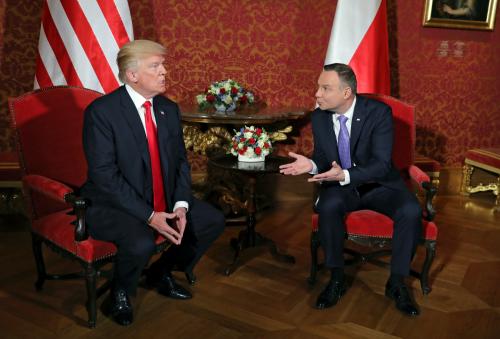
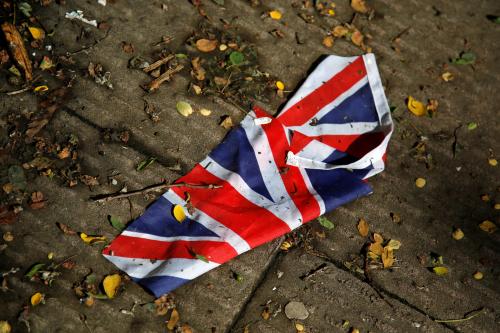
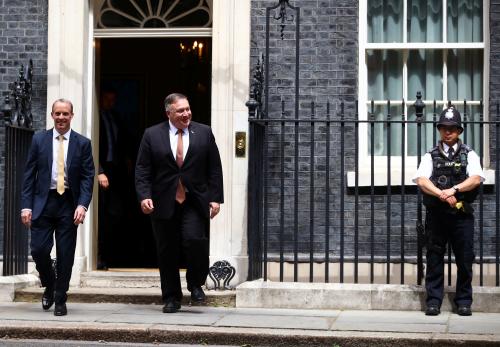




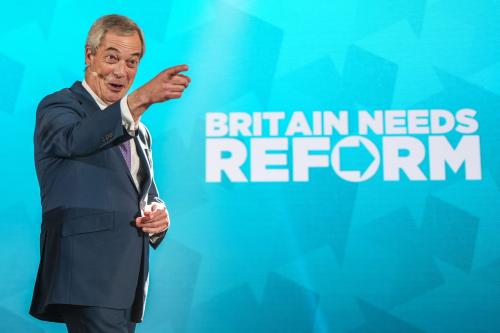
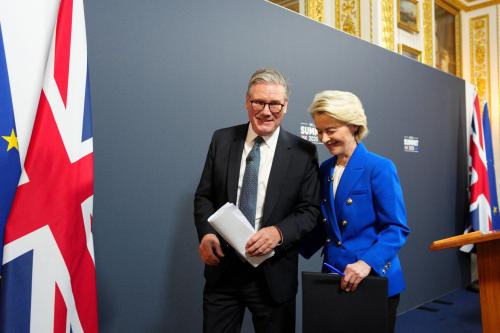
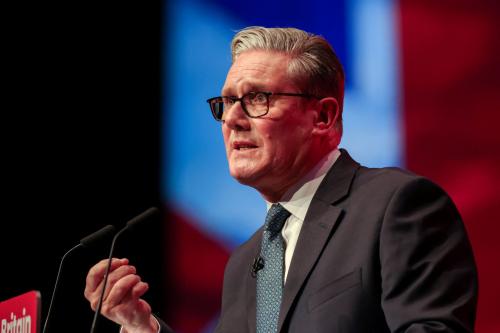
Commentary
Op-edTrump backed Brexit. Then he used it as leverage.
July 12, 2018